Gardening in Melton: Transform Your Outdoor Space
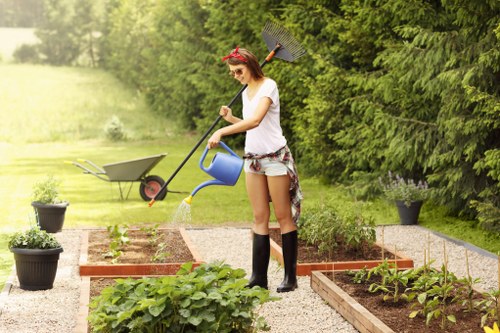
Introduction to Gardening in Melton
Melton offers a unique environment for gardening enthusiasts, with its diverse climate and fertile soil making it an ideal location for a variety of plants. Whether you're a seasoned gardener or just starting out, Melton provides the perfect backdrop to cultivate a lush, thriving garden.
From vibrant flower beds to sustainable vegetable gardens, the possibilities are endless. This guide explores the best practices, local resources, and tips to help you make the most of your gardening endeavors in Melton.
Embracing gardening not only enhances the beauty of your home but also contributes to a healthier and more sustainable lifestyle. Let’s delve into the essentials that will help you grow a successful garden in Melton.
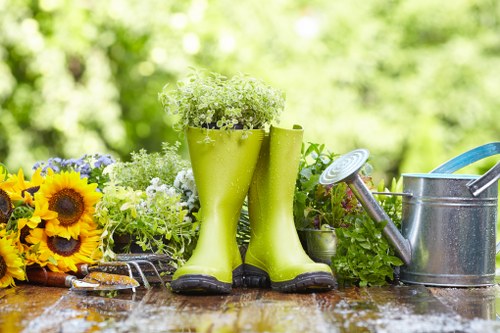
Climate and Soil Conditions in Melton
Understanding the Local Climate
Melton experiences a temperate climate with distinct seasons, which plays a significant role in determining the types of plants that can thrive. The region benefits from warm summers and mild winters, providing a conducive environment for both annuals and perennials.
The average rainfall is adequate for most gardening needs, but monitoring and managing water resources is essential for maintaining healthy plants. Utilizing rainwater harvesting systems can be an eco-friendly way to ensure your garden remains well-watered throughout the year.
Additionally, understanding the microclimates within Melton can help you position your plants in areas where they can receive optimal sunlight and protection from harsh weather conditions.
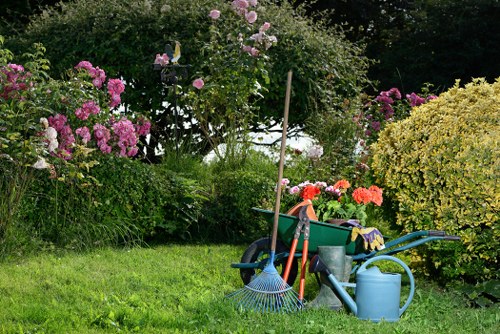
Soil Composition and Preparation
The soil in Melton is predominantly loamy, offering good drainage and nutrient retention. However, conducting a soil test is recommended to determine pH levels and nutrient content. Based on the results, you may need to amend the soil with organic matter such as compost or manure to enhance fertility.
Preparing your garden bed involves tilling the soil to break up compacted areas and incorporating organic amendments to improve structure. Raised beds can also be an excellent option for better soil control and drainage, especially in areas with heavier clay soils.
Regularly adding mulch to your garden not only conserves moisture but also suppresses weeds and regulates soil temperature, creating an ideal environment for plant roots to thrive.
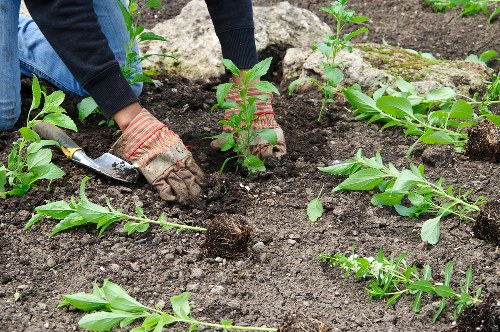
Choosing the Right Plants for Melton Gardens
Native Plants and Their Benefits
Incorporating native plants into your Melton garden is highly beneficial. These plants are well-adapted to the local climate and soil conditions, requiring less water and maintenance while providing habitat for local wildlife.
Species such as Eucalyptus, Grevillea, and Acacia are excellent choices for adding both beauty and functionality to your garden. Native grasses and wildflowers can also enhance biodiversity and contribute to a sustainable ecosystem.
Using native plants reduces the need for chemical fertilizers and pesticides, promoting a healthier environment for both your garden and the surrounding area.
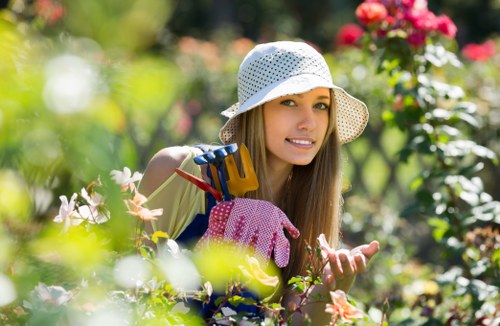
Popular Flowering Plants in Melton
Floral displays are a staple of Melton gardens, with a wide variety of flowering plants available to suit different aesthetics and preferences. Roses, lavender, and daisies are beloved for their vibrant colors and pleasant fragrances, making them perfect for creating eye-catching garden spaces.
Perennials like lilies and peonies offer long-lasting blooms, while annuals such as marigolds and petunias provide seasonal color and variety. Incorporating a mix of these plants can ensure continuous flowering throughout the growing season.
For those interested in attracting pollinators, consider planting species like sunflowers, zinnias, and cosmos, which are known to draw bees, butterflies, and other beneficial insects to your garden.

Garden Design and Layout Tips
Planning Your Garden Space
Effective garden design starts with careful planning. Assess the available space, sunlight exposure, and soil conditions to determine the best layout for your plants. Creating designated areas for different plant types can enhance both aesthetics and functionality.
Consider using raised beds or container gardening to maximize space, especially if you have a smaller yard. Pathways and seating areas can also add structure and provide places to enjoy your garden.
Incorporate elements such as trellises, pergolas, and vertical gardens to add height and dimension to your garden design, creating a more dynamic and engaging outdoor space.
Choosing Color Schemes and Themes
Selecting a cohesive color scheme can greatly enhance the visual appeal of your garden. Harmonious colors create a pleasing aesthetic, while contrasting hues can add excitement and drama. Consider the time of blooming of different plants to ensure year-round color continuity.
Theming your garden based on styles such as modern, cottage, or Mediterranean can provide a framework for choosing plant types, materials, and accessories that align with your vision.
Incorporating decorative elements like garden sculptures, fountains, or lighting can complement your color and theme choices, adding character and charm to your garden.

Gardening Techniques and Best Practices
Sustainable Gardening Methods
Adopting sustainable gardening practices is essential for maintaining a healthy and eco-friendly garden in Melton. Techniques such as composting, rainwater harvesting, and using organic fertilizers can significantly reduce your environmental footprint.
Companion planting is another effective strategy, where certain plants are grown together to naturally repel pests and enhance growth. For example, planting basil alongside tomatoes can improve their flavor and deter insects.
Implementing crop rotation in vegetable gardens prevents soil depletion and reduces the risk of pest infestations, ensuring long-term garden productivity.
Effective Water Management
Efficient water usage is crucial, especially during the dry summer months. Installing drip irrigation systems can deliver water directly to plant roots, minimizing evaporation and conserving water. Additionally, mulching helps retain soil moisture and reduces the need for frequent watering.
Choosing drought-tolerant plants and scheduling watering during the early morning or late evening can further enhance water conservation efforts in your garden.
Regularly checking for leaks and maintaining your irrigation system ensures that water is used effectively, supporting the health and growth of your plants.

Seasonal Gardening in Melton
Spring Planting Tips
Spring is an ideal time to kickstart your gardening projects in Melton. As the weather warms up, it's the perfect opportunity to plant a variety of flowers, vegetables, and herbs. Start by preparing your garden beds with fresh compost and ensuring proper soil drainage.
Planting hardy annuals like pansies and snapdragons can add vibrant colors early in the season, while perennials like hostas and daylilies will provide lasting beauty. Seed starting indoors for vegetables such as tomatoes, peppers, and cucumbers can give your garden a head start for a bountiful harvest.
Don't forget to prune spring-flowering shrubs to promote healthy growth and encourage robust blooming throughout the year.
Summer Gardening Strategies
Summer gardening in Melton requires a focus on maintaining plant health and managing heat and drought conditions. Regular watering, preferably in the early morning, is essential to keep plants hydrated and prevent stress.
Implementing shade cloths or providing natural shade through strategically placed trees and structures can help protect sensitive plants from intense sunlight. Mulching also plays a crucial role in retaining soil moisture and keeping roots cool.
Pruning and deadheading spent flowers encourages continuous blooming and prevents plants from becoming overgrown or leggy during the peak growing season.

Local Gardening Resources in Melton
Melton Gardening Clubs and Groups
Joining local gardening clubs and groups is a fantastic way to connect with fellow gardening enthusiasts in Melton. These communities offer a wealth of knowledge, support, and opportunities to share experiences and tips.
Participating in workshops, seminars, and garden tours organized by these clubs can enhance your gardening skills and provide inspiration for your own garden projects.
Networking with other gardeners also opens up possibilities for plant exchanges, collaborative projects, and collective problem-solving, fostering a sense of community and mutual support.
Local Nurseries and Garden Centers
Melton boasts a variety of nurseries and garden centers that cater to diverse gardening needs. These establishments provide a wide selection of plants, seeds, tools, and supplies, ensuring that you have everything required to cultivate a thriving garden.
Staffed by knowledgeable horticulturists, local nurseries are excellent resources for personalized advice on plant selection, care techniques, and pest management strategies tailored to Melton's specific climate and soil conditions.
Supporting local businesses not only benefits your garden but also contributes to the local economy and community sustainability.

Pest and Disease Management in Melton Gardens
Identifying Common Pests
Keeping pests under control is vital for maintaining a healthy garden. In Melton, common pests include aphids, caterpillars, and snails, which can cause significant damage to plants if left unchecked.
Regularly inspecting your plants for signs of infestation, such as chewed leaves or sticky residues, allows for early intervention. Introducing natural predators like ladybugs and praying mantises can help keep pest populations in check without resorting to harmful chemicals.
Implementing physical barriers, such as row covers and netting, provides effective protection against larger pests like caterpillars and snails, ensuring your plants remain safe and healthy.
Managing Plant Diseases
Plant diseases, often caused by fungi, bacteria, or viruses, can severely impact your garden's productivity and appearance. Common diseases in Melton include powdery mildew, blight, and root rot, which can weaken plants and stunt their growth.
Preventative measures, such as proper spacing of plants for adequate airflow, avoiding overhead watering, and selecting disease-resistant plant varieties, are key to minimizing the risk of infections.
In cases where diseases do occur, promptly removing and disposing of affected plant parts can prevent the spread to healthy plants. Using organic fungicides and maintaining overall plant health through proper nutrition and care further aids in disease management.

Advanced Gardening Techniques
Organic Gardening Practices
Organic gardening emphasizes the use of natural methods and materials to cultivate plants, reducing reliance on synthetic chemicals. This approach enhances soil health, promotes biodiversity, and results in safer, chemical-free produce.
Incorporating compost, manure, and green fertilizers into your soil enriches it with essential nutrients, fostering robust plant growth. Crop rotation and intercropping help maintain soil fertility and disrupt pest life cycles, contributing to a sustainable garden ecosystem.
Using organic pest control methods, such as neem oil, diatomaceous earth, and insecticidal soaps, effectively manages pests without harming beneficial insects or contaminating the environment.
Permaculture and Sustainable Design
Permaculture is a sustainable gardening practice that mimics natural ecosystems to create self-sufficient and resilient gardens. By observing and integrating elements like water management, plant guilds, and natural habitats, permaculture designs optimize resource use and minimize waste.
Implementing techniques such as rain gardens, swales, and companion planting establishes a harmonious balance between plants, animals, and the environment. This holistic approach not only enhances garden productivity but also contributes to environmental conservation.
Sustainable design principles in your Melton garden can lead to reduced maintenance efforts, increased biodiversity, and a more profound connection with nature.

Seasonal Maintenance and Care
Autumn Gardening Tasks
As the seasons transition to autumn, certain gardening tasks become essential to prepare your garden for the cooler months. Clearing fallen leaves, pruning overgrown branches, and mulching beds help protect plants from frost and maintain soil health.
Planting cover crops like clover or rye can prevent soil erosion, enrich soil fertility, and suppress weed growth during the winter months. Additionally, storing garden tools and cleaning containers ensures that your equipment remains in good condition for the next growing season.
Adjusting your watering schedule to accommodate reduced evaporation rates and ensuring adequate drainage help prevent waterlogging and root diseases as temperatures drop.
Winter Gardening Strategies
Winter gardening in Melton involves planning and preparing for the upcoming spring. Protecting sensitive plants with frost covers or cold frames can extend the growing season and safeguard against unexpected frosts.
Pruning deciduous trees and shrubs during their dormant phase promotes healthy growth and prevents damage from snow and ice accumulation. Additionally, incorporating indoor gardening techniques, such as growing herbs in windowsills or utilizing greenhouses, allows for year-round cultivation.
Regularly monitoring your garden's storage areas for pests and ensuring proper ventilation helps maintain the integrity of stored plants and supplies throughout the winter months.

Gardening Tools and Equipment
Essential Tools for Every Gardener
Having the right tools is fundamental to successful gardening. Essential tools for gardeners in Melton include a sturdy shovel, a reliable rake, pruning shears, a hand trowel, and a watering can or hose with adjustable nozzles.
Investing in quality tools ensures durability and ease of use, making gardening tasks more efficient and enjoyable. Ergonomic designs can reduce strain and prevent injury during prolonged use.
Additional tools such as a wheelbarrow, garden fork, and compost bin enhance your gardening capabilities, allowing you to tackle more extensive projects and maintain optimal soil conditions.
Advanced Equipment for Enhanced Gardening
For those looking to elevate their gardening practices, advanced equipment like soil testers, drip irrigation systems, and greenhouse kits offer enhanced control and efficiency. Soil testers provide precise information about nutrient levels and pH, enabling tailored soil amendments.
Installing a drip irrigation system automates watering, ensuring plants receive consistent moisture while conserving water. Greenhouse kits create a controlled environment for growing delicate or exotic plants, extending your gardening season and expanding your plant repertoire.
Using power tools like electric mowers, tillers, and hedge trimmers can significantly reduce labor and time spent on maintenance, allowing you to focus more on creative aspects of gardening.

Local Gardens and Inspiration in Melton
Visiting Beautiful Local Gardens
Exploring local gardens in Melton can provide valuable inspiration and ideas for your own gardening projects. These gardens showcase a diverse array of plant species, design layouts, and creative gardening solutions tailored to the Melton climate.
Visiting public gardens, botanical parks, and community gardens offers the opportunity to observe different gardening styles, learn about native plants, and connect with fellow gardening enthusiasts.
Participating in garden tours and open house events can spark new ideas and motivate you to experiment with unique plant combinations and innovative design elements in your own garden.
Online and Print Resources
In addition to physical gardens, numerous online and print resources are available to support your gardening journey in Melton. Gardening blogs, forums, and social media groups provide platforms for exchanging tips, troubleshooting issues, and showcasing your garden’s progress.
Local gardening magazines and books offer in-depth articles, plant profiles, and seasonal guides tailored to the Melton region, helping you stay informed about the latest gardening trends and best practices.
Utilizing these resources can enhance your knowledge, keep you updated on gardening innovations, and provide continuous inspiration to refine and expand your garden.

Gardening Events and Workshops in Melton
Participating in Community Events
Melton hosts a variety of gardening events and workshops throughout the year, catering to gardeners of all skill levels. These events offer hands-on learning experiences, expert advice, and opportunities to network with other gardening enthusiasts.
Attending workshops on topics such as composting, organic gardening, and landscape design can expand your knowledge and introduce you to new techniques and trends. Community events like garden fairs and plant sales provide access to a wide range of plants, tools, and gardening supplies at competitive prices.
Engaging in these events fosters a sense of community, allowing you to share your passion for gardening and gain support from like-minded individuals.
Educational Seminars and Courses
For those seeking more in-depth education, Melton offers seminars and courses on specialized gardening topics. Institutions like local colleges, botanical gardens, and community centers regularly schedule classes that cover advanced gardening techniques, sustainable practices, and plant science.
Enrolling in these courses provides structured learning experiences, enabling you to develop advanced skills and apply them to your garden projects.
Completing certification programs or specialized training can also open up opportunities for volunteering, mentoring, or even pursuing a career in horticulture.

Gardening for Health and Wellbeing
The Therapeutic Benefits of Gardening
Gardening offers numerous health benefits, contributing to both physical and mental wellbeing. Engaging in regular gardening activities promotes physical exercise, improving strength, flexibility, and cardiovascular health.
The act of nurturing plants and spending time outdoors can reduce stress, anxiety, and depression, fostering a sense of calm and relaxation. Gardening also enhances cognitive function, offering opportunities for learning, problem-solving, and creative expression.
Additionally, harvesting and consuming home-grown vegetables and herbs supports a nutritious diet and encourages healthier eating habits, further benefiting overall health.
Creating a Relaxing Outdoor Space
A well-designed garden serves as a sanctuary, providing a tranquil environment for relaxation and reflection. Incorporating elements like comfortable seating, water features, and sensory plants can enhance the soothing atmosphere of your garden.
Designing specific areas for meditation, reading, or socializing creates functional spaces that cater to different aspects of your lifestyle, making your garden a versatile extension of your home.
By prioritizing comfort and aesthetics, you can transform your garden into a personal retreat that supports mental and emotional wellbeing.

Gardening Challenges and Solutions
Dealing with Drought and Water Scarcity
Melton's hot summers can pose challenges related to drought and water scarcity. Implementing water-efficient gardening practices is essential to ensure your garden remains healthy during dry periods.
Techniques such as drip irrigation, mulching, and planting drought-tolerant species help conserve water and reduce the frequency of watering required. Collecting and storing rainwater provides an additional water source, further enhancing your garden's resilience against drought conditions.
Designing your garden layout to maximize shade and minimize water loss can also aid in maintaining moisture levels, ensuring your plants survive and thrive despite limited water availability.
Managing Weeds and Invasive Species
Weeds and invasive species can quickly overtake a garden, competing with desirable plants for nutrients, water, and sunlight. Regular maintenance, including hand-weeding and the use of mulch, is crucial for keeping weeds under control.
Implementing preventive measures such as landscape fabric or edging can create physical barriers that inhibit weed growth. Introducing ground covers or densely planting garden areas reduces the open space available for weeds to establish.
For persistent weed problems, consider using organic herbicides or natural weed control methods to eliminate unwanted plants without harming your garden's ecosystem.

Gardening for Wildlife in Melton
Attracting Beneficial Wildlife
Creating a garden that attracts beneficial wildlife enhances biodiversity and supports a balanced ecosystem. Birds, bees, butterflies, and other pollinators play vital roles in pest control and pollination, contributing to the overall health of your garden.
Planting a variety of nectar-rich flowers, providing birdhouses and bee hotels, and installing water sources like birdbaths create an inviting habitat for these beneficial creatures.
Incorporating native plants and avoiding the use of pesticides ensures a safe environment for wildlife, promoting their presence and activity in your garden.
Creating Habitats for Local Fauna
Designing your garden to include diverse habitats supports a wide range of local fauna. Features such as rock piles, log piles, and brush piles offer shelter and nesting sites for insects, amphibians, and small mammals.
Leaving a portion of your garden wild or incorporating a native bush area provides a natural refuge for wildlife, enhancing your garden's ecological value and beauty.
Encouraging the presence of predators like ladybugs, spiders, and birds of prey helps maintain a natural balance, reducing the need for manual pest control and fostering a thriving garden ecosystem.

Technology and Modern Gardening in Melton
Smart Gardening Tools
Advancements in technology have revolutionized gardening, making it easier and more efficient to manage your garden. Smart gardening tools such as automated irrigation systems, soil moisture sensors, and weather tracking devices provide valuable data to optimize plant care.
Smartphone apps and gardening software offer features like plant databases, garden planning tools, and pest identification guides, enhancing your gardening experience and knowledge.
Integrating these technologies into your garden management practices can lead to improved plant health, higher yields, and a more enjoyable gardening process.
Using Online Resources and Communities
The digital age has made it easier than ever to access gardening resources and connect with a global community of gardeners. Online forums, social media groups, and virtual workshops provide platforms for sharing ideas, asking questions, and finding solutions to gardening challenges.
Streaming tutorials, webinars, and virtual garden tours offer opportunities for continuous learning and inspiration, allowing you to expand your gardening skills and stay updated on the latest trends.
By leveraging online resources and communities, you can enhance your gardening knowledge, gain new perspectives, and build connections with fellow enthusiasts from around the world.

Local Gardening Services and Support
Finding Professional Gardening Services
For those who prefer assistance or lack the time for hands-on gardening, professional gardening services in Melton offer a range of solutions. These services include garden design, maintenance, landscaping, and specialized plant care, ensuring your garden remains in top condition.
Hiring a local gardener or landscaper provides expertise in plant selection, soil management, and pest control tailored to Melton's specific climate and conditions. Professional services can also help implement complex garden projects, such as installing irrigation systems or building garden structures.
Choosing reputable local services ensures personalized attention, quality workmanship, and a deep understanding of the unique challenges and opportunities presented by Melton's gardening environment.
Community Support and Volunteer Opportunities
Engaging with community support and volunteer opportunities can foster a collaborative gardening spirit in Melton. Community gardens offer shared spaces where individuals can work together, share resources, and cultivate collective green spaces.
Volunteering for local gardening projects, such as tree planting initiatives or park maintenance, contributes to the beautification and sustainability of Melton while providing hands-on experience and skill development.
Participating in community-driven gardening efforts strengthens social bonds, promotes environmental stewardship, and creates a sense of pride and ownership in the local landscape.

Top Nearby Areas for Gardening Enthusiasts
Exploring Surrounding Regions
Melton is surrounded by several areas that offer excellent gardening opportunities and resources. Exploring these nearby regions can provide additional inspiration and access to unique plant varieties and gardening services.
- Riverside: Known for its picturesque riverbanks, Riverside offers ideal conditions for water-loving plants and beautiful reflection gardens.
- Greensborough: A green suburb with numerous parks and community gardens, Greensborough is perfect for those seeking collaborative gardening experiences.
- Harkness: Harkness boasts rich soil and a temperate climate, making it an excellent area for vegetable and herb gardens.
- Broadmeadows: With extensive public gardens and botanical centers, Broadmeadows provides ample resources and educational opportunities for gardeners.
- Sunbury: Known for its extensive nursery nurseries and garden centers, Sunbury is a haven for plant enthusiasts looking for a diverse selection of species.
- Wyndham: Wyndham's suburban landscapes offer opportunities for residential gardening and neighborhood beautification projects.
- Glenroy: Glenroy features several community gardens and green spaces that encourage sustainable and organic gardening practices.
- Mount Macedon: With its cooler climate and elevation, Mount Macedon is ideal for growing a variety of native and alpine plants.
- Tullamarine: Tullamarine provides easy access to gardening services and suppliers, making it convenient for maintaining a thriving garden.
- Doncaster: Doncaster's well-established gardens and parks offer inspiration and opportunities for professional gardening collaborations.
- Brooklyn: Brooklyn hosts several annual garden events and flower shows, attracting gardeners from surrounding areas.
- Richmond: Richmond's historic gardens and heritage sites provide a unique backdrop for traditional and contemporary gardening styles.
- Brimbank: Brimbank's diverse community gardens celebrate multicultural gardening practices and plant varieties.
- Albion: Albion offers excellent soil conditions and a temperate climate, suitable for a wide range of plant species.
These nearby areas enhance Melton's gardening landscape, offering varied environments, resources, and communities that support and inspire local gardeners.

Conclusion: Embrace Gardening in Melton
Gardening in Melton presents a rewarding opportunity to connect with nature, enhance your living space, and contribute to a sustainable environment. By understanding the local climate and soil conditions, selecting the right plants, and adopting effective gardening practices, you can cultivate a beautiful and thriving garden.
Leverage the wealth of local resources, engage with the gardening community, and explore nearby areas to expand your gardening horizons. Whether you’re tending to a small balcony garden or managing an expansive backyard oasis, Melton provides the perfect setting to realize your gardening dreams.
Ready to transform your outdoor space? Contact us today to start your gardening journey in Melton and create a garden that reflects your passion and creativity.
Get In Touch
Please fill out the form below to send us an email and we will get back to you as soon as possible.
Telephone:
Opening Hours: Monday to Sunday, 00:00-24:00
Website: jackgardeners.com
Description:
Expert gardeners offering lawn care, landscaping, and garden maintenance. Transform your yard with our help.
Copyright © Jack Gardeners. All Rights Reserved.
